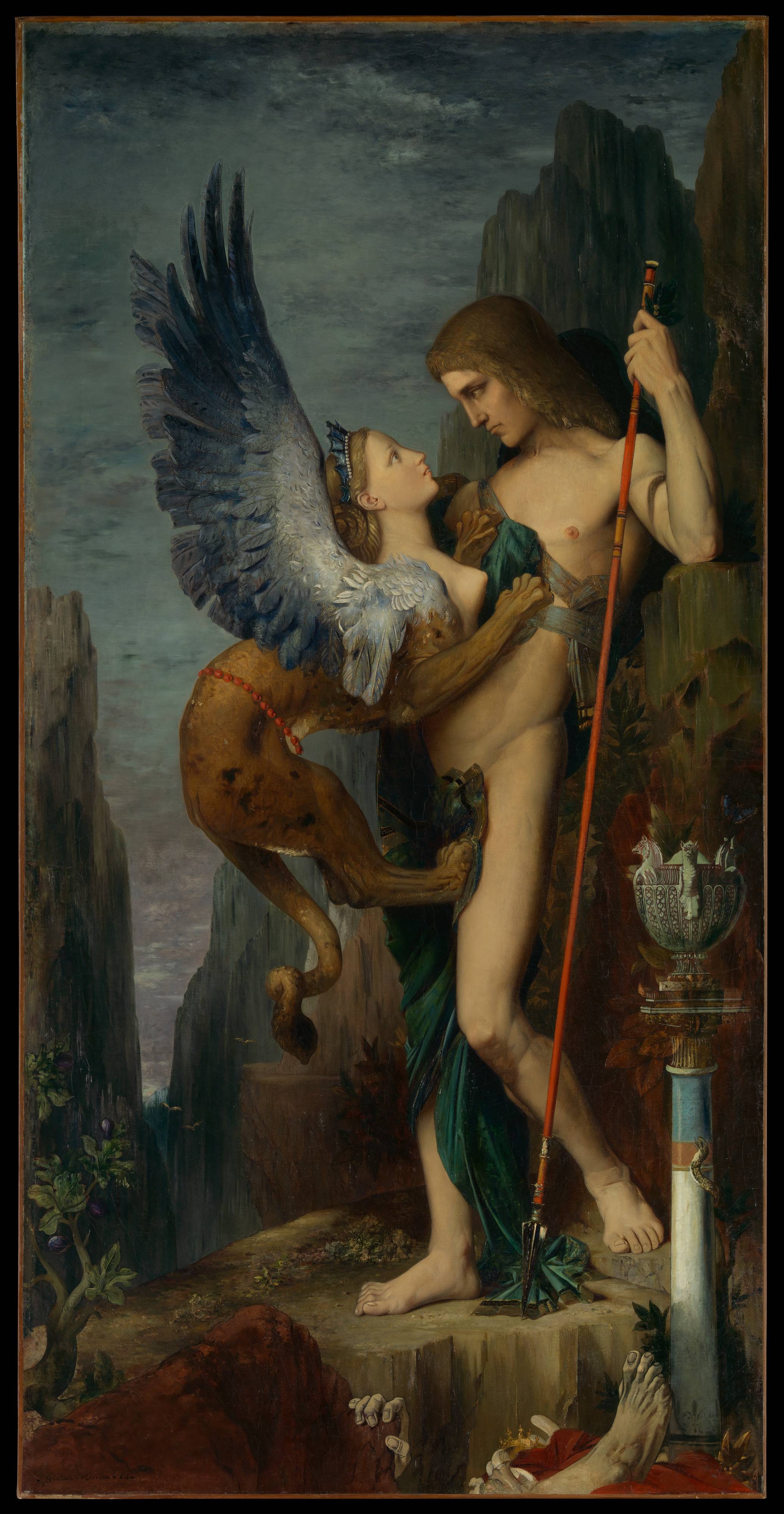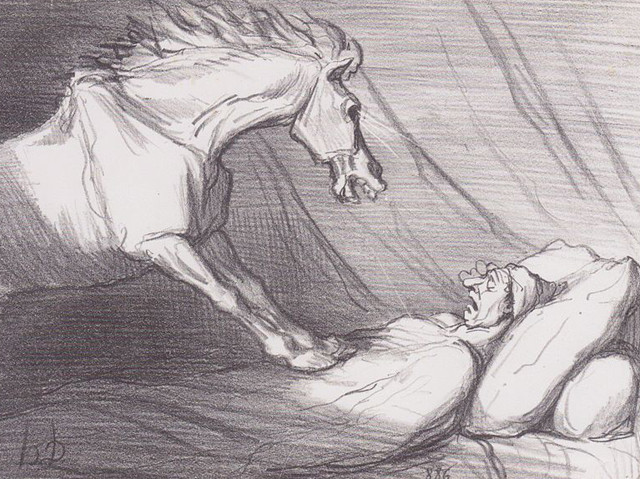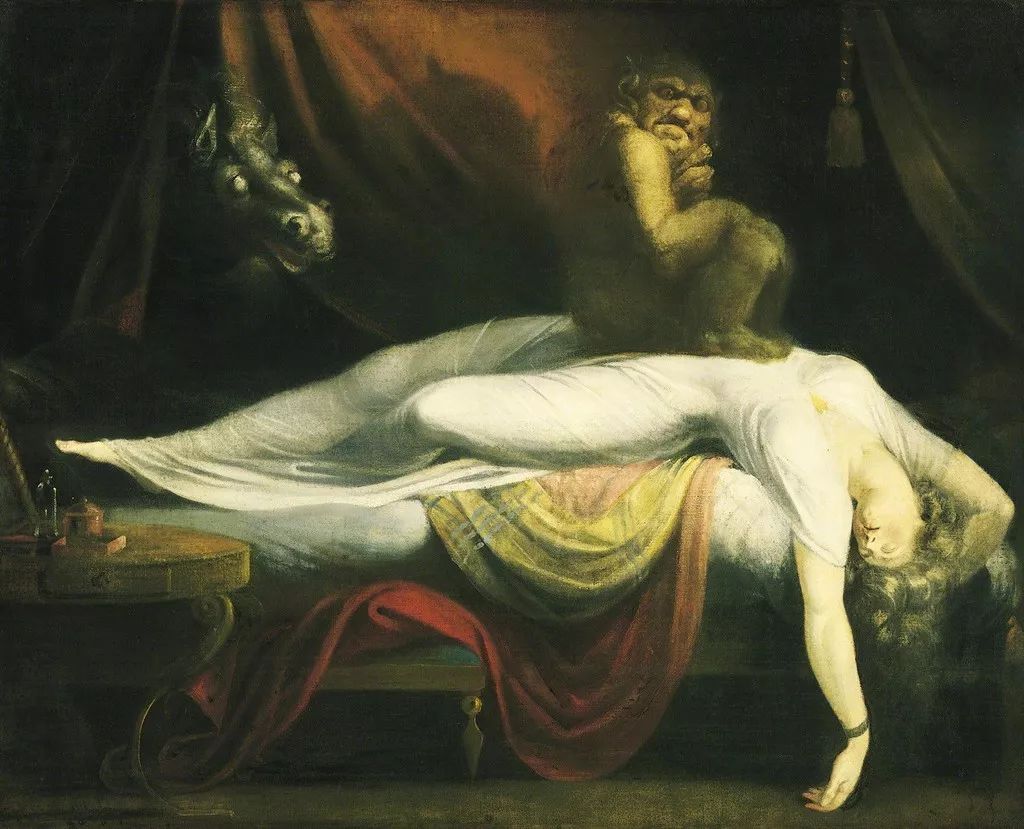This problem is solved by ART:
The depiction to the left is that of a sphinx (Gustave Moreau's Oedipus and the Sphinx), those to the right are symbolic representations of nightmares (Daumier's Horse Meat is Healthy and Digestible & Füssli's The Nightmare, resp.) (I thought I remembered seeing a combination of the two, but I might be mistaken).
The sphinx suffocates by burdening her victims. This can be done both physically and psychologically.
This is not at all surprising, given the etymology of the word 'sphinx':
"In English from early 15c., from Latin Sphinx, from Greek Sphinx, said to mean literally "the strangler," a back-formation from sphingein "to squeeze, bind" ([ref.] 'sphincter')"



